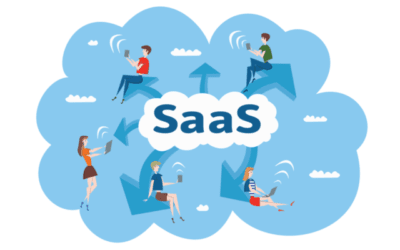During the global COVID-19 pandemic, the business entities were forced to adapt to remote work. Following Upwork’s forecasts, until 2028, 73% of companies are going to transfer their employees to home-office in full or in partial. Before quarantine, this index was less than 30%. To improve labour in terms of quarantine the introduction of ERP alongside with CMR is preferential for 53% of companies interested in automation of key business processes, in particular, in remote format.
The 2020-2021 year pandemic caused the economic crisis, having seriously violated delivery chains all over the world. Delivery problems, in their turn, resulted into a reduction of the world income from production by 15 trillion US dollars. It was a compelling reason for manufacturing companies to refuse from obsolete resource management methods in favour of modern alternatives. Relying on statistics, before the pandemic, almost 50% of production enterprises were using the ERP. Following ABI Research, until 2024 their investments in this software sector are going to increase up to 14 billion US dollars.
ERP: how to manage resources during a pandemic
Thus, the coronavirus pandemic showed the importance of digitalization in our time and made many companies to reconsider their strategy and put internal work to order. The ERP-system demonstrates the efficiency of fulfilling this job in all departments and among all employees. The business owner may arrange and control of staff activity in remote format 24/7 that, in its turn, permits to optimize all processes and continue working usually, but simultaneously more efficiently.
How can ERP manage business failures?
-
Synchronization of processes
ERP organizes all business processes of the enterprise in the unified system and permits to make the workflow interrelated and consistent. In “remote” terms, synchronization of this flow between different subdivisions permits to harmonize tasks on all levels, to adjust horizontal relations, for example, between the sale and the purchase departments. This way, according to Panorama Consulting’s data, 12% of companies, which introduced the ERP system, among other advantages the productivity and labour efficiency growth of staff are remarked.
-
Remote control and process management
Around 49% of users select ERP to increase business processes outcomes. ERP is the tool that allows exercising total control over these processes and competently managing operation of various departments, divisions, branch offices and employees, in particular, a delegation of tasks under their official duties.
-
Data centralization
Data centralization still remains TOP advantages of the system. The ERP operation principle consists in the formation of the unified database containing the central management and production information (financial reports, KPI etc.) Employees having access to the system may get detailed information about the condition of the company and use it for taking routine decisions.
-
Real-time planning
In terms of the international economic crisis, competent decisions must be taken “then and there”. Information stored in the ERP is the source of essential data, without which it is impossible to assess the enterprise’s financial condition, forecast risks and plan actions in emergencies. Flexible analytical tools allow significantly reducing time for similar calculations. For example, relying on statistics, 14% of companies are integrating the system for automation of reports and business forecasts generation.
-
Optimization of costs
Costs optimization is one of three primary purposes, which business owners try to achieve by introducing ERP. Optimization of costs of the enterprise promotes:
- Coordination of working processes. Employees’ adaptation to the home office in the system means a reduction of costs for individual office conditions for every employee. At that, it is possible to distribute load rationally and form productive inter-department connections. It decreases costs for personnel upkeep and increases labour productivity.
- Remote resources management. The situation at the stock house is shown in the ERP, permitting to plan needs for reserves, avoiding proficit or deficit, and distribute them rationally. Thus, the reduction of costs for procurement of materials by 7% and of stock reserves amount by 35% can be achieved.
- Service quality improvement. ERP accelerates orders processing, optimizes logistic processes, improves the productivity of communication with clients resulting in sale rate growth by 40%. Due to this, ERP becomes an irreplaceable tool for marketing specialists in home-office.
- Adjustment of communication with subcontractors. In the home office, it isn’t easy to build up relations with other organizations. But it is possible thanks to ERP. Using information about different suppliers (their goods, services, prices), one can estimate how their capabilities coincide with the company’s needs and to choose the most beneficial offers, saving monetary funds.
-
Protection of information against unauthorized entry
According to the research of Verizon Data Breach Investigations Report, in 2019, 67% of data leakages took place as a result of thefts and manipulative attacks. In the period of crisis, the frequency of frauds increases. ERP allows protecting commercially significant information by separating access rights and users’ capabilities. It permits to increase data security from trespassers’ actions, which may cause leakage of business ideas and secrets of the organization and its clients.
ERP as a business tool while overcoming the crisis
In 2020-2021 every company was influenced by quarantine restrictions when failure to transfer to home-office meant going bankrupt and getting out of the game. Those, who understood the importance of the introduction of the unified resources planning system in due time, succeeded to avoid problems related to labour productivity, client support, building communication with subcontractors and costs optimization.
General Soft state that enterprise resources can be used with maximum efficiency when the adaptable, informative and intuitive ERP system is available. Following statistics, almost 95% of companies achieved the rise in efficiency of business processes after the introduction of the system. Due to this, business purposes can be achieved even under such uncertainty circumstances as the 2020-2021 world pandemic. Turn to our specialists for consultations immediately, and we will help to create a system that can settle your individual business purposes!






